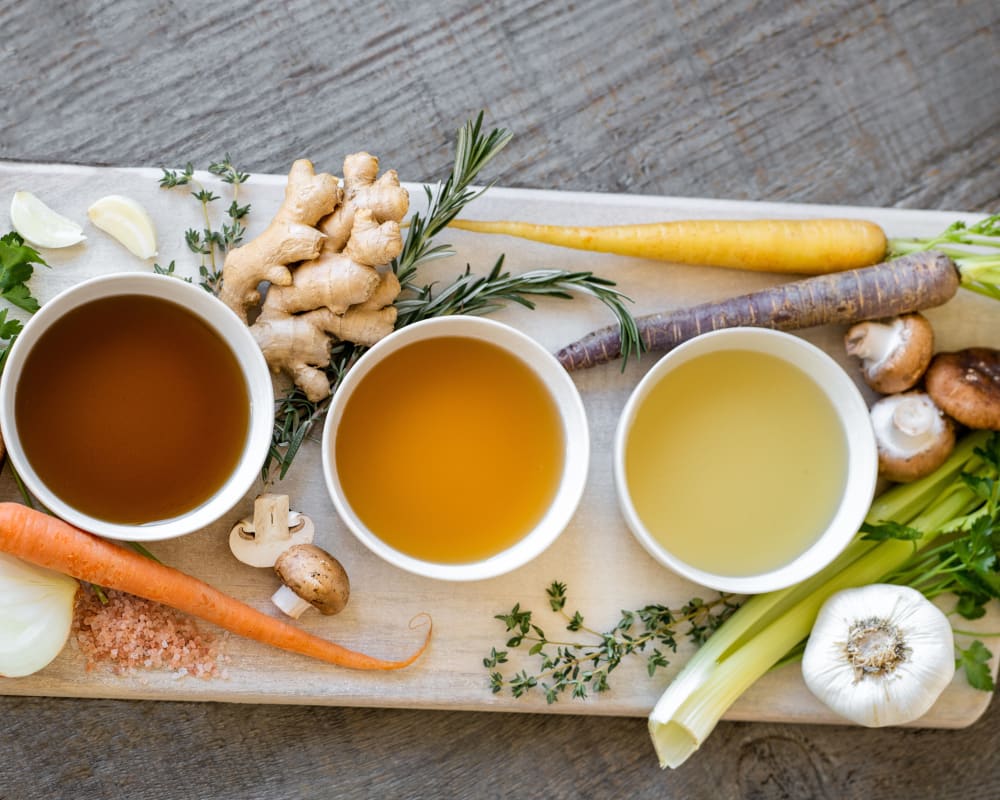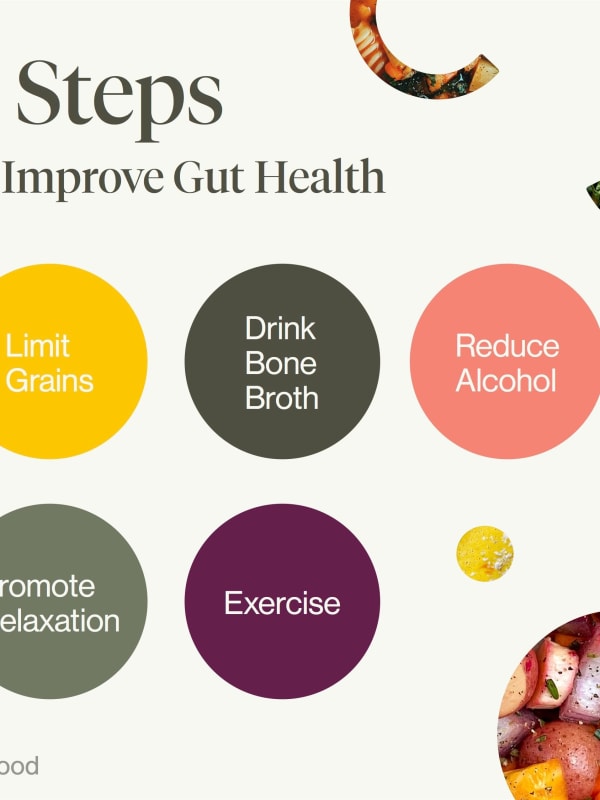5 Simple Steps to Improve Gut Health

5 Simple Steps to Improve Gut Health
It's impossible to overestimate the importance of gut health! From ancient heavyweights like Hippocrates to the most modern cutting-edge scientific researchers, those in the know emphasize the intestine as the origin of wellness- or disease. With a few lifestyle tweaks, you too can up your gut game and see first-hand what all the fuss is about!
1. Cut Back on Grains:
It has been well established that gluten causes inflammation in the gut. The glutinous alpha-gliadin protein found in wheat loosens the tight junctions that seal the membrane of our small intestine. Yet, gluten isn't the only grain-based protein known to cause inflammation in the gut. Even gluten-free grains like rice, corn, and even oats can sometimes be sneaky immune system provocateurs.
If you've never done a grain-free challenge before, you might be amazed at what a difference it can make. If you've been trying to heal your gut for some time but are spinning your tires, gluten and other grains may be part of what's holding you back. For most people, cutting out grains all together is too much. An elimination diet can work wonders to help you discover what grains don’t work for you. Either way, take it slow; your gut will thank you.
2. Drink Bone Broth
Bone broth is a rich natural source of collagen, minerals, and protein. It is also an excellent source of glutamine, the amino acid famous for repairing a leaky gut. It may seem in style lately, but humans have been drinking bone broth across cultures for millennia. It is exceptionally well-tolerated by almost everyone.
With the rise in popularity of instant pots and pressure cookers, this comforting food is now a lot easier to make. You can pop all your ingredients into a pressure cooker and have delicious, high-quality bone broth without hours of simmering.
There is real wisdom in this ancient tradition. Many people use broth as a fall-back food to resort to when feeling under the weather. Broth not only replaces electrolytes it also provides comfort. I mean, who doesn't enjoy a bowl of hot salty soup when they are nursing a cold?
3. Actively Lower Stress:
The stress-gut connection is real. Among other things, the stress hormone cortisol has a crucial role in stabilizing blood sugar. The more stressed out you are, the more your cells will need sugar for fuel, and the more cortisol will have to step in to find it. One of its favourite places to scare up more sugar is by breaking down proteins in the small intestine, a process called gluconeogenesis.
Stress reduction is best not as an abstract concept but as something real and active. Walks in nature, yoga, tai chi and meditation, or simply a few deep breaths when the time is available can all modulate cortisol levels, help engage the parasympathetic ("rest and digest") nervous system, and noticeably reduce stress.
4. Exercise:
Physical activity has pronounced effects on the hundreds of billions of non-human cells in our gut called the microbiome. Exercise can help us foster strains of cooperative bacteria that help us nourish and protect the integrity of our gut barrier instead of those that create inflammatory, toxic compounds.
Exercise also helps to support stress in the body. Mild to moderate intensity can have an adaptogenic effect, making the body's stress response more elastic and resilient. Some of the benefits of physical activity on stress levels might be related to the microbiome. Certain strains of beneficial bacteria are required for the proper production of calming neurotransmitters.
Put it all together, and you get the undeniable exercise-gut connection. Don't overdo it, but make sure to stay active.
5. Reduce Alcohol Intake:
Alcohol consumption will also affect the overall balance of the microbiome but in the other direction! Alcohol in excess will encourage the flourishing of yeast, fungi, and dysbiotic (aka bad) bacteria in the small intestine and bowel.
The tight junctions that bind our intestinal cells to one another are sensitive to ethanol. So if you are trying to recover from a leaky gut or making your lifestyle more gut-friendly, go easy on the drinking. Of course, it would be remiss not to mention that consistent alcohol intake can potentially strain liver function and bile flow, which, on top of detoxification, is key to healthy digestion, which is key to a healthy gut!
As with grains, it would be ideal to remove alcohol entirely while you are on a quest to improve your gut health. But of course, everyone is human, and if total abstinence isn't realistic, then just do your best not to overdo it.

It is essential to take things slow when it comes to gut health. All of these suggestions are meant to be simple. If anything feels out of reach, do what you can. Remember, stress significantly impacts gut health. Making small, approachable changes is the best way to make long-term sustainable improvements to your gut health.
If you're looking for more resources on how to support your gut health, check out our Instagram infographics, linked recipes and articles.





